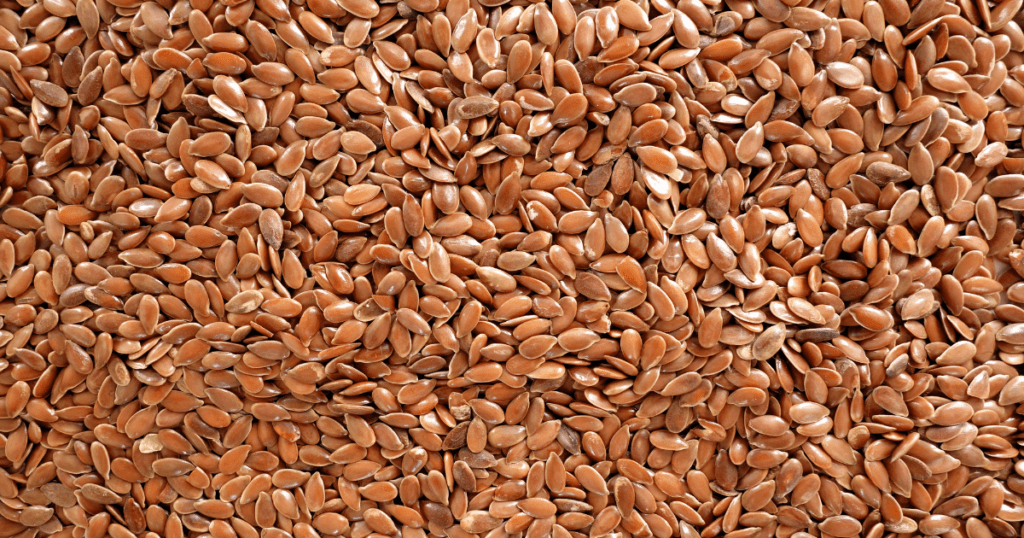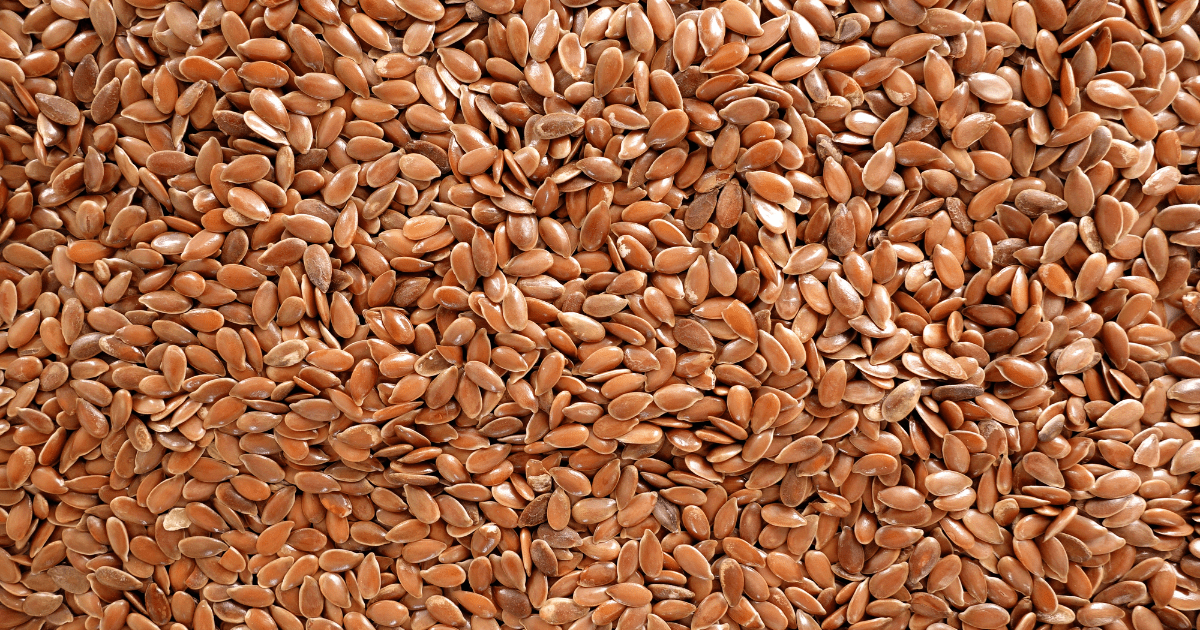Flaxseed’s Secrets: A Health Revolution!
Unleash the Power of Flaxseed: Health Benefits, Disease Prevention, and Delicious Ways to Incorporate this Superfood into Your Diet!
The research on the effects of dietary flaxseed has seen a significant increase in recent times. The research shed light on the diseases it can help treat or prevent, its various health impacts, the bioactive compounds within flaxseed responsible for these health benefits, and its forms that are most effective in delivering these bioactive to the body. Moreover, data from animal studies have been translated to human trials with rigorous standards of control, providing valuable information for the general public especially for individuals dealing with compromised health conditions. As a result of these findings, the food processing industry has started incorporating it into a variety of products.

Key nutrients in flaxseed include:
- Alpha-linolenic acid (ALA): An omega-3 fatty acid that can help lower cholesterol levels, reduce inflammation, and mitigate the risk of certain cancers.
- Fiber: Known for its ability to relieve constipation, control cholesterol levels, and promote a feeling of fullness.
- Lignans: Compounds with antioxidant properties, which offer protection against various health issues.
Flaxseed Benefits
Dietitians and health experts are enthusiastic about the seeds for several reasons:
- Omega-3 Fatty Acids: Flaxseed is an abundant source of alpha-linolenic acid (ALA), a type of omega-3 fatty acid known to promote heart health. It’s especially beneficial for vegetarians and omnivores since it’s the richest plant source of ALAs in North American diets.
- Lignans: These phytoestrogens are linked to a reduced risk of osteoporosis, heart disease, and breast cancer. They also possess antioxidant properties, offering cell protection.
- Fiber: The seeds are an excellent source of soluble fiber, which can help lower cholesterol, and stabilize blood sugar. They also contribute in reducing the risk of heart disease.
- Protein: The seeds provides high-quality plant protein, similar to soybeans.
- Potassium: They contain more potassium than even potassium-rich bananas, contributing to normal blood pressure regulation.
The seeds exists in various forms for human consumption, including whole flaxseed, ground flaxseed, flaxseed oil, partially defatted flaxseed meal, and even flax “milk.” Flax milk, for instance, is a cholesterol-free and lactose-free alternative to dairy milk, suitable for people with allergies to soy, nuts, and gluten.
Flaxseed has a pleasant nutty smell and flavor, making it suitable for incorporation into a wide range of foods. They are included in snack bars, muffins, bread, pasta, and other food items. The concentration of the seeds in these foods can vary, with some containing up to 28% by weight. Daily intake of the seeds has been observed to reach as high as 40 to 50 grams over an extended period.
Benefits for Heart Health
The research on flaxseed’s impact on cardiovascular health has been a significant focus. In animal models, dietary flaxseed has shown promise in reducing the progression of atherosclerosis, primarily due to its anti-inflammatory properties, particularly its ALA content. In humans with cardiovascular issues, flaxseed has displayed notable benefits, including a substantial reduction in blood pressure. Blood pressure could lead to a 50% decrease in the incidence of heart attacks and strokes.
Benefits for Diabetes
Flaxseed has also been investigated for its effects on diabetes. Studies reveal reductions in blood glucose levels in individuals with type 2 diabetes and prediabetes. Additionally, it exhibits protective effects against various cancers, particularly breast cancer, due to the presence of lignans and ALA. Flaxseed has also shown promise in improving brain function, potentially providing neuroprotection during certain neural diseases.
Benefits for Female
Flaxseed’s estrogenic properties have led to studies examining its potential to alleviate menopausal symptoms. While some studies have reported positive effects, results have been inconclusive in others. It’s essential to exercise caution when using flaxseed during pregnancy and lactation.
Benefits for Skin Health
In terms of skin health, flaxseed oil has been linked to improved skin properties, including reduced sensitivity, increased hydration, and smoother texture. It can potentially offset the effects of aging by correcting the balance of pro- and anti-inflammatory compounds in the body.
Benefits for Gastrointestinal Health
Flaxseed can also influence gastrointestinal health by altering the bacterial flora in the intestines, potentially leading to various health outcomes. However, the impact on specific diseases remains a topic of debate.
In summary, while there is no definitive evidence of toxicity from dietary flaxseed, it’s essential to be aware of potential toxic compounds such as cyanogenic glycosides and linatine. For most individuals, incorporating the seeds into their diet can offer numerous health benefits. Experts recommend starting with a smaller amount, like a teaspoon a day. The amount can be gradually increased to around 2 tablespoons daily to avoid digestive discomfort.
How to Eat
You can add the seeds to various foods, including yogurt, salads, sauces, smoothies, and baked goods. Ground or milled seeds are the most effective form for delivering its omega-3 content. It’s important to check for expiration dates when buying pre-ground flaxseed. Store the seeds in the refrigerator to prevent spoilage.
In conclusion, flaxseed is a nutritional powerhouse with numerous health benefits that outweigh its caloric content. It can be a valuable addition to one’s diet, offering protection against various diseases and promoting overall well-being. However, it’s important to exercise caution in certain medical conditions, and for the most health benefit, you should grind or crush the seeds before consumption.
Sources:
Parikh, M., et al. (2019). Dietary Flaxseed as a Strategy for Improving Human Health. Nutrients. 2019 May; 11(5): 1171. National Library of Medicine. (https://www.ncbi.nlm.nih.gov/pmc/articles/PMC6567199/) Accessed October 19, 2023
Civeland Clinic. Flaxseed: Little Seed, Big Benefits. (https://health.clevelandclinic.org/flaxseed-little-seed-big-benefits/). Accessed October 23, 2023
Mayo Clinic Health System. Flaxseed: Tiny nutritional powerhouse. (https://www.mayoclinichealthsystem.org/hometown-health/speaking-of-health/flaxseed-tiny-nutritional-powerhouse) Accessed October 24, 2023
Category
- Health Issues (72)
- Healthy Diet (48)
- Herbs for Health (11)
- Mental Health (33)
- Skin Care (20)

